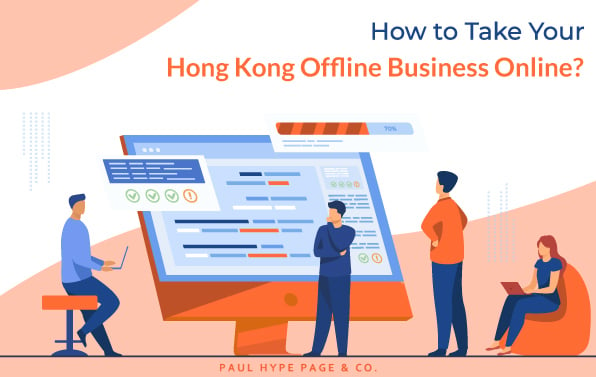What’s in this article
- Factors that determine the size of a business in Hong Kong
- Common small businesses in Hong Kong
- Potential finance sources for starting a small business
- Types of small businesses to start in Hong Kong
- How to start a small business in Hong Kong?
- Choosing a business location
- Government’s role in supporting the small business in Hong Kong
- Summary
- FAQs
Starting a small business in Hong Kong offers numerous opportunities, thanks to its supportive government policies and efficient regulatory framework. This article outlines the essential steps and resources needed to launch and grow a small business in the city.
Factors that determine the size of a business in Hong Kong
A business can be a small, medium-sized, or large corporation. Below are some of the factors that determine the size of a business in Hong Kong:
- Amount of capital investment
- Your business requirement
- The total number of your workforce and the type of business.
Common small businesses in Hong Kong
- Retail businesses
- Business and professional services industry
- Import and export businesses
- Wholesale business
- Manufacturing: clothes, bags, toys electronics, etc.
- Transportation
- Accommodation and Food industry
- Information technology: the creation of mobile applications
- Real estate
- Financial and insurance services.
Potential finance sources for starting a small business
- Personal Savings
Personal savings refers to finances that you deliberately set aside to start a business. These savings could be from other investments. - Friends and family
Family and friends can be a potential financial source for you to start a small business. They may decide to give you some funds towards your business endeavor as goodwill or as an investment of future favors. Starting your business with funds from friends and family is a risky endeavor because they can later contribute to the failure of your business or severed relationships. Be sure to set guidelines and to ask if there are strings attached. - Liquidation of assets
You may also decide to sell some of your possessions by checking your wardrobe, furniture, or and even fixed assets like land with the hope to buy a replacement when you are stable. - Loans
Financial sources for starting a small business can also be from loans. These loans can be from informal sources such asfriends and family or formal sources such as financial lending institutions. When dealing with informal lending methods, have a witness and a written document. Be sure to not over-borrow from the financial lending institutions because they can auction your business or assets when you fail to pay.
Types of small businesses to start in Hong Kong
Sole proprietorships
As the only owner, you enjoy all the profits and shoulder all the debts or losses. Operating some sole proprietorships do not require business licenses or permits for operation. It depends on the extent of your business dealings. However, you will still need to register your business at the Inland Revenue Department of Hong Kong.
Limited liability
A common business structure for small entrepreneurs is a limited company because the leadership requirements are easy to fulfill. You only need one shareholder and one director of which you can occupy these two positions.
Partnerships
Partnerships formed when two people come together to do business together. There are two form of partnerships: a limited partnership or a general partnership.
How to start a small business in Hong Kong?
Starting a small business in Hong Kong does not require many regulations or heavy fees. After you have decided the area in which you want to venture into and have organized your financial plan, you will need a suitable business place and name. After which, you need to register your business at the Inland Revenue Department by submitting your duly filled business registration application form and pay registration fee at their office for business registration. You will be presented with a Business Registration certificate upon successful registration. This registration fee is paid every year when renewing the certificate.
You will then need to apply for a business bank account. This will enable you to separate your finances from your business finances. You will also need to apply for appropriate licenses/permits which apply to your business.
You are good to go at this point, ensure you give the business the important attention it deserves, and you will haply reap the benefits of your hard work.
Choosing a business location
Your business location can be a physical location in terms of a premise or an online marketplace:
A physical business location
The physical business location should be a safe, convenient, and business-friendly site. It should be a place that your potential clients should be easily able to locate.
An online business place (e-commerce)
Before deciding on an online business place, be sure you are familiar with how to maneuver your way through your choice. The options available are a website, social media, or a mobile app. With online location, traffic is a reliable source of potential clients. So be sure your marketing skills are above top-notch. Opting for social media should be only for those with great supportive followers. I stress support because you can have many followers who will not bother to support your endeavor.
You also need to know how to reach different audiences. That means you must be well versed with the needs of each category of audience.
Last but especially important, always ensure that you deliver exactly as advertised. Do not advertise a certain product/service and offer another.
E-commerce comes in two different forms: Business-to-Consumer (B2C) and Business-to-Business (B2B). Just as the name suggests, B2C is a business that deals with consumers, you sell directly to the last persons in the supply chain, the consumers. While B2B is a business that deals with another business, their client is another business who in turn sell these goods/services to their clients or transform them into other products.
Government’s role in supporting the small business in Hong Kong
The Hong Kong government is to ensure that it provides a conducive business environment for the small businesses to thrive in. It does so through low tax rates, support for innovative works, protection for intellectual property rights, protection of individual rights, steady human resources supply, excellent infrastructure, funding schemes, grants and tax incentives, among others.
The government also provides free business information and secretariat support to those intending to start a small business in Hong Kong.
Summary
Small business usually succeeds through referrals. You provide a good service or deliver an excellent product, and your customers/clients will refer to new potential clients to your place. Also, small business owners usually face adverse economic effects during economic recessions. It is therefore important when starting your small business to purpose to keep it small but powerful. Do not spread yourself thin. Select a particular product or service and give it your full attention.
FAQs
No, there is no Hong Kong law or regulation which prevents a small-scale investor from going big. However, when that happens, it changes the nature of your business structure, and thus you need to register it according to this newer category.
It depends on the level of your income. If you are earning more than the set minimum income level per month or year, you are required to pay MPF to yourself and make contributions regularly.
You are not mandated by law to have a business plan as a small business owner. However, for your business to grow in the right direction and for you to be able to measure progress against your strategic goals, you need a business plan. Besides, for you to be able to secure loans, the loaning facilities will require you having a business plan if your business is the collateral.
No. a foreign-owned business is not considered a small business in Hong Kong because it is usually either a branch, a representative office, or a subsidiary office of the parent company. Any business established by a large corporation is not a small business.





